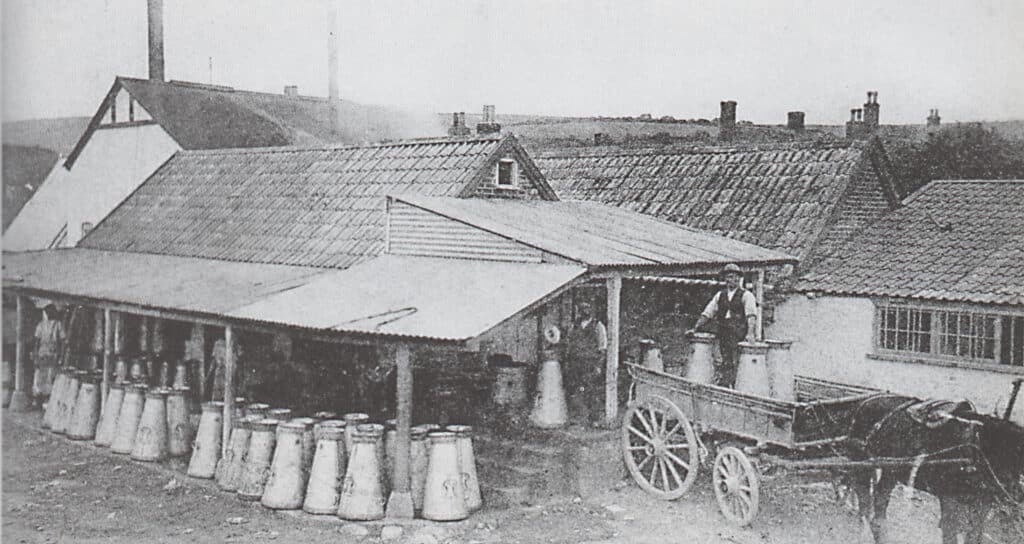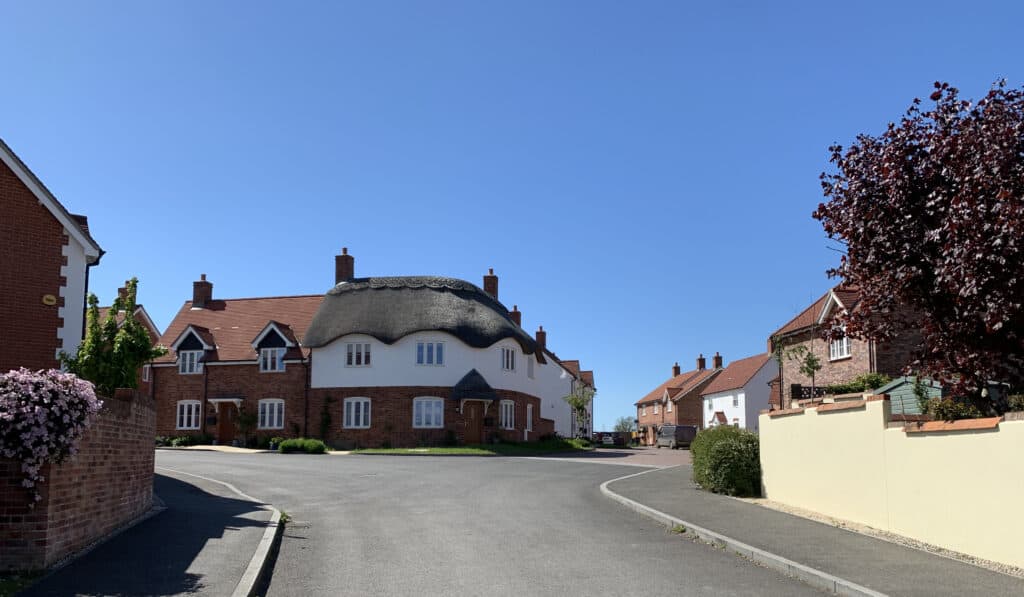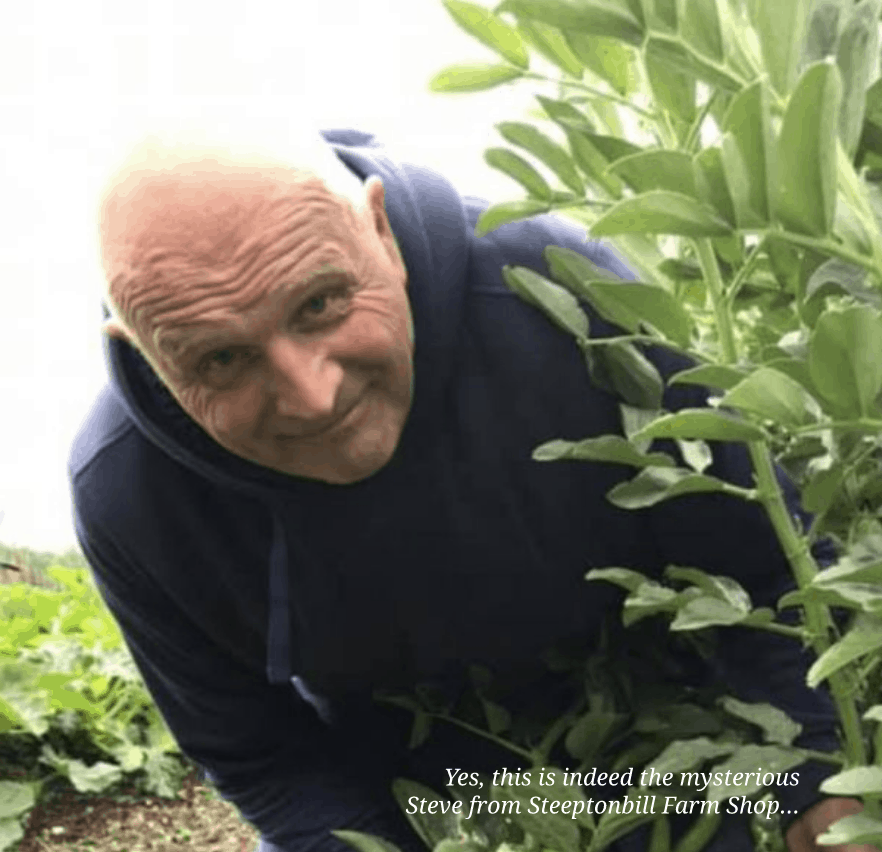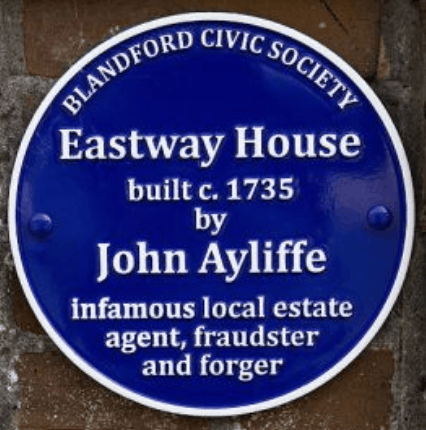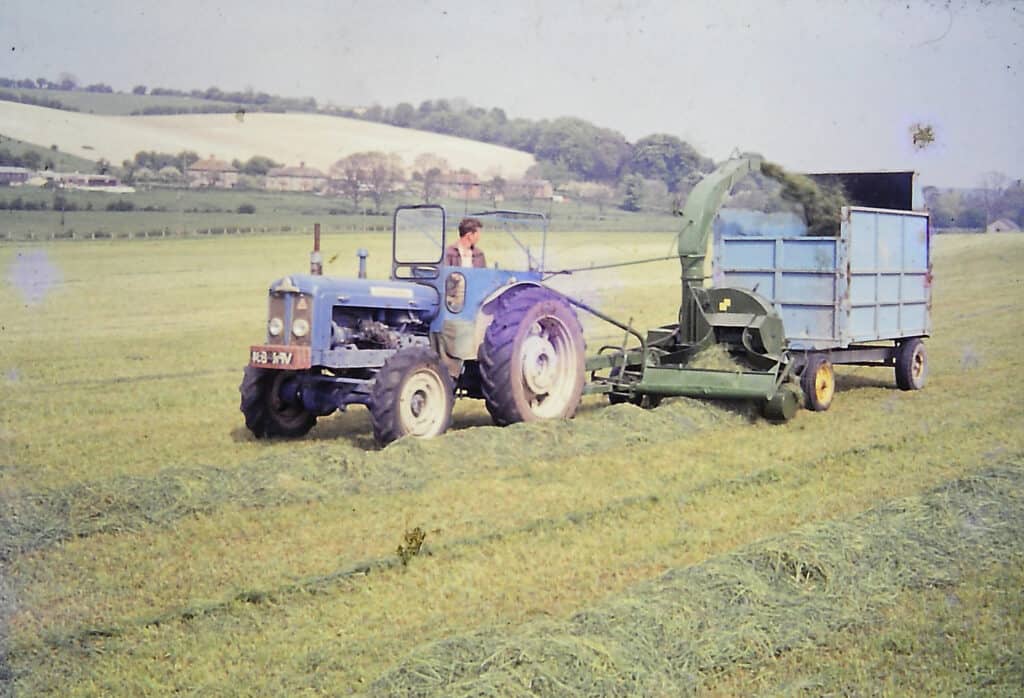Great little farm shop and outdoor café up a dirt track near Milton Abbas owned by ‘Steve,’ but run by two self-confessed ‘smiley girls,’ Sandy and Hannah, who are lovely.
This prize-winning venue is called Steeptonbill Farm Shop and the name comes from the sheep that ‘Steve’ (not sure if ‘Steve’ exists, I’ve never seen him) farmed on Portland, presumably near the Bill (how do you do it, Sherlock).
Apart from having the charmingly haphazard air of being expanded with random stretches of canvas tenting on an ad hoc basis (which I love, in fact, I wouldn’t mind living there, might even meet ‘Steve,’) it does help if you like cats as there are a dozen friendly felines roaming around rather needing attention. These ones seemed to like me (such judgement) and I had pleasure in stroking them – plus there’s an entertainingly noisy cockerel which doesn’t know when to shut up (a bit like Meghan Markle).
It’s got an astonishingly eclectic range of produce, including fresh herbs and spices including chillis and ginger – good, as I was planning a curry that evening. And there’s an outdoor café. Well worth a visit.
Apart from loading up on the necessaries, I bought some goat burgers with red wine and rosemary. I also bought a tin of haggis, but should have looked at the label first as when I studied the contents later I saw it contained ‘lamb’s lobes…’ There’s going to be a few alarm bells in this column, and these are the first.
If you want to know what ‘lobes’ are, and I think you should, they are lungs. Off-putting (or offal-putting) but better than what I first thought ‘lobes’ meant.
So that went in the bin. Yes, I know there are people starving but how am I going to get a tin of lungs and oatmeal to Africa.
***
OK, as I write this the weather is appalling, but spare a kind thought for my lovely nephew Jack who’s 26 this month. Jack’s in the RAF. He was a bit of a drifter and didn’t have a life plan but the RAF’s sorted him out and he’s totally smart and confident now (without being arrogant). He was a Flight Officer, the lowest rank for a commissioned officer. Then came the chance for his class’s first overseas posting.
Obviously, everybody wanted the choice posts, such as Cyprus or Gibraltar, with guaranteed sunshine, swimming in a warm sea and beautiful fresh food. I told Jack if he volunteered for a tough post, his sacrifice and service would make the RAF gaze at him with love and affection (much the same way the Ed views me, although the skill with which she hides it is admirable).
Jack chose the Falklands. Fair play to the lad, he actually was interested in going to such an odd spot, he reckoned Cyprus would come later when he was a Wing Commander flying Spitfires (or whatever they have now, probably updated them, may have stuck a jet engine in, possibly SatNav and parking sensors).
He flew out three days ago (refueling at Dakah in the 18 hour flight) in the West African nation of Senegal, not the Ascension Islands). So, now this delightful fella is adjutant at the RAF base 8,064 miles away – the final 64 miles must have been a killer (‘Are we there yet?,‘I need a wee’). And he is now Acting Flight Lieutenant, his first promotion.
I can honestly say that this is the first time I have ever given anyone advice that has worked out well (except the editor of this magazine, I wait in vain for gratitude) although Jack has gone from one British winter to a South Atlantic Winter (temperatures in August can reach a balmy minus 10) and he returns in November to another British winter.
I’m unsure if he knew this when he took his uncle’s advice, and I detected a slight reserve on his part when I phoned on the day of his departure. ‘It’s character forming,’ I told him, with all the assurance of someone not going to the Falklands for seven months. ‘Mmmm,’ he said.
***
My wife Kae and her friend Linda went to the charming little rural cafe, Petranettes at Pleck Hill on the Mappowder to Hazlebury road, run by two sweet German sisters, Petra and Anette.
If you like eating cake while looking at stunning views, Petranette’s is for you.
But not when they went.
Watching the barn rocked by gusts of 55 MPH gusts, drinking hot chocolate and each wrapped in the equivalent of eight, 50-tog duvets, they agreed that it was ‘atmospheric’. I love Linda. Despite her youth, she is delightfully old fashioned, in person and dress, and uses words like ‘behove’ and ‘umbrage’. We need to cherish these oddities. – Laura, could you take that bit out as Linda is an avid reader of the mag (OK, Ed).
***
Watch out for the DFLs
Driving to Marnhull we’d obviously pressed the ‘invisible’ button on our car as several enormous sparklingly clean 4x4s, clearly owning the road, swept past on narrow lanes without bothering to move to the edge of the road, causing us to pull-in. No acknowledgement.
‘DFLs,’ Kae said.
Readers will know DFL stands for Down From London (there is a ruder definition, available by request). But this may be a good thing. London wealth, and believe me, these people know how to spend, will spread throughout Dorset.
So we in the Blackmore Vale must be ‘big’ about DFLs (they’re easily recognizable, they don’t smile and they avoid eye-contact). Our shops, restaurants, pubs, and all who they employ and who supply them, will benefit from the wealth of people (for whom rural living must be a quaint mystery) so if we all could adopt a humble attitude when they arrive after lockdown, perhaps doff our caps and say ‘aarhhh, that be rioight tasty,’ over a pewter mug of ‘zider’, our county will be the better for it. They’re just a bit annoying. But I do wish I owned a tank (which at one time, I actually looked at doing). No pulling over then.
***
I see from last issue’s letters page that I have one fan. That’s one out of this magazine’s proven regular on-line readers (readership is increasing every month. Proof that a quality online magazine works. I hate to say this, but Laura the Ed must be doing something right.
My fan is Mike Jones of Sherborne. Now, I don’t know Mike, but he clearly is a man of enormous intelligence and taste. I’m guessing he’s a professor or prominent barrister, possibly very handsome with American teeth. Writes elegant poetry, when he’s not raising funds for an orphanage, in his spare time.
I understand Laura is getting a blue plaque made for this wonderful man with the words, ‘Mike Jones – living proof that at least 0.006% of readers find Andy’s columns ‘amusing’.
I’m hoping that by the time of the fourth lockdown I’ll increase my fan base to 1% of readers, so please mail Laura.
***
As the mid early Bank Holiday weekend approached I suddenly found we were almost out of oil for our boiler. I searched online for suppliers and one quoted more than £800, a sum which included a premium for quick delivery.
Ford Fuels of Gibbs Marsh delivered 766 litres the next day for £328, no surcharge, just good service organized by a pleasant lady called Harriet.
And the very next day, the Saturday of the Bank Holiday, made remarkable for cold wind and rain, our boiler stopped working due to leaking pipes elsewhere in the house.
No hot water or central heating for three days. I mentioned this in a mail to my nephew in the Falklands. ‘Good,’ he replied. Am I being paranoid, or was there a slight air of resentment?
***
I see that The Fox in Corscombe is now run by chef Mark Hix and is attracting a bit of flack for banging in a ‘discretionary’ service charge of 12.5% on all food, including bar snacks. He’s also adopted the, in my view, questionable policy of charging separately (£3.75) for each side dish (on top of which is the ‘discretionary’ 12.5% charge). It may be the urban thing, but for a country boozer during a pandemic?
Readers may have views about this. Certainly those who’ve visited have and scores on Trip Advisor are not what Mark, undoubtedly a great chef, is aiming for. But I’m intrigued by one review that says, ‘it’s all a bit fur coat and no knickers’. If any reader can enlighten me on this comment do let me know.
***
There’s a delightful plaque outside Eastway House in Blandford’s East Street commemorating John Ayliffe (Laura you can down load the plaque which refers to him as ‘infamous local estate agent, fraudster and forger’).
The plaque does Ayliffe credit, as he appears to have been an out-and-out rascal and his career ended on November 7th, 1759 when he was executed at Tyburn ‘for forgery’.
Until the day before the sentence Ayliffe was pretty sure he’d be let off with a pardon. I admire his sunny disposition. And he was about to be pardoned by the astonishingly generous Henry Fox, who Ayliffe had robbed, but as Mr Fox went to ask for the pardon he received evidence of new crimes Ayliffe committed and Fox, unsurprisingly, changed his mind.
Now, you’d think that such practices in those days could not be repeated in the modern age. Wrong.
I read in The Times only a few weeks ago about a modern Ayliffe. Step forward conman, chancer, serial liar Mark Acklom who courted a lonely widow, telling her that he was wealthy and hinted that his role as an international banker was a cover for his real work with MI6.
Alarm bells, you’d think, as by and large secret agents don’t generally go about announcing that they’re a secret agent. Sort of ruins the point of being a secret agent. Look at James Bond. You’d never guess he’s a spy.
Acklom took the widow to an airfield and pointed out the planes he ‘owned’. He drove her around in a smart car (hired for the day) pointing out large houses that he ‘owned’. He also claimed to be the illegitimate son of George Soros, the billionaire banker.
And then, wait for it, one of his businesses ‘had a cash flow problem’, could he borrow £27,000 (alarm bells) from the widow. She obliged. Then he plausibly explained why he needed more. All in all he ‘borrowed’ more than £800,000 from the widow which she never saw again.
Acklom was finally caught and received a prison sentence. With a lot of vulnerable people around, we must help our lonely neighbours.
***
I note that in the last issue of your online Blackmore Vale, the very lovely (but shockingly uncultured) editor Laura covered the newly refurbished Plough at Manston. The pub boasted about their Shepherd’s Pie.
That’s The gauntlet laid firmly down.
Now, I presume they do mean Shepherd’s Pie (lamb mince) not Cottage Pie (beef mince) or American Pie (a song by Don McLean).
I’m not a boastful man (Really? Ed) but I reckon my Shepherd’s Pie’s a world-beater. I got my recipe from my Italian mate, Alessandro Testa (from Bologna) who was my neighbour in France, and from (wait for this) Keith Richards of The Rolling Stones.
The big secret is very-finely grated carrot, which gives sweetness. And apart from finally chopped celery, before you put the cheesy (unpeeled) mashed chids on top, you spread a thin layer of cooked grated onion on top of the mix.
Keef’s toned-down his riders (conditions insisted on by touring bands, which venues must adhere to) for concerts (I shudder to think what they were when his security clearance badge stated ‘Excess All Areas’) but a rider which remains is that there must be a pre-show cottage pie, to the recipe noted above.
And for young musicians, here’s a fact: the band Van Halen had a rider which famously stated the venue must provide M&Ms in the dressing room, ‘but all brown ones removed’. A quirky condition you’ll think, but there was a serious reason for this.
Their stage equipment was so heavy that included in the riders was a condition that stages must be able to carry a specific weight of equipment (I make the same request when I buy boxer shorts). The tour manager needed to know that all requests had been read and were carried out. If the band got brown smarties, there was a chance the venue hadn’t bothered to read the other stipulations and the gig was off.
***
Bit short on puns, this month’s column, and I’m worried I’m letting Mike of Sherborne down, and we’re rather getting on.
So I’ll close by saying another reader, having read some wonderfully-crafted puns in my last column, asks if I ‘live in the Punjab’ (now that’s a bad ‘un and it has no place in a quality on-line magazine).
So, I will answer (in similar Indian geographic wordplay style) and say ‘with that pun, we’re going from Hyderabad to Hyderaworse’, and immediately, I’ve lifted the tone.
OK, Mike? Still a fan?
By: Andy Palmer
